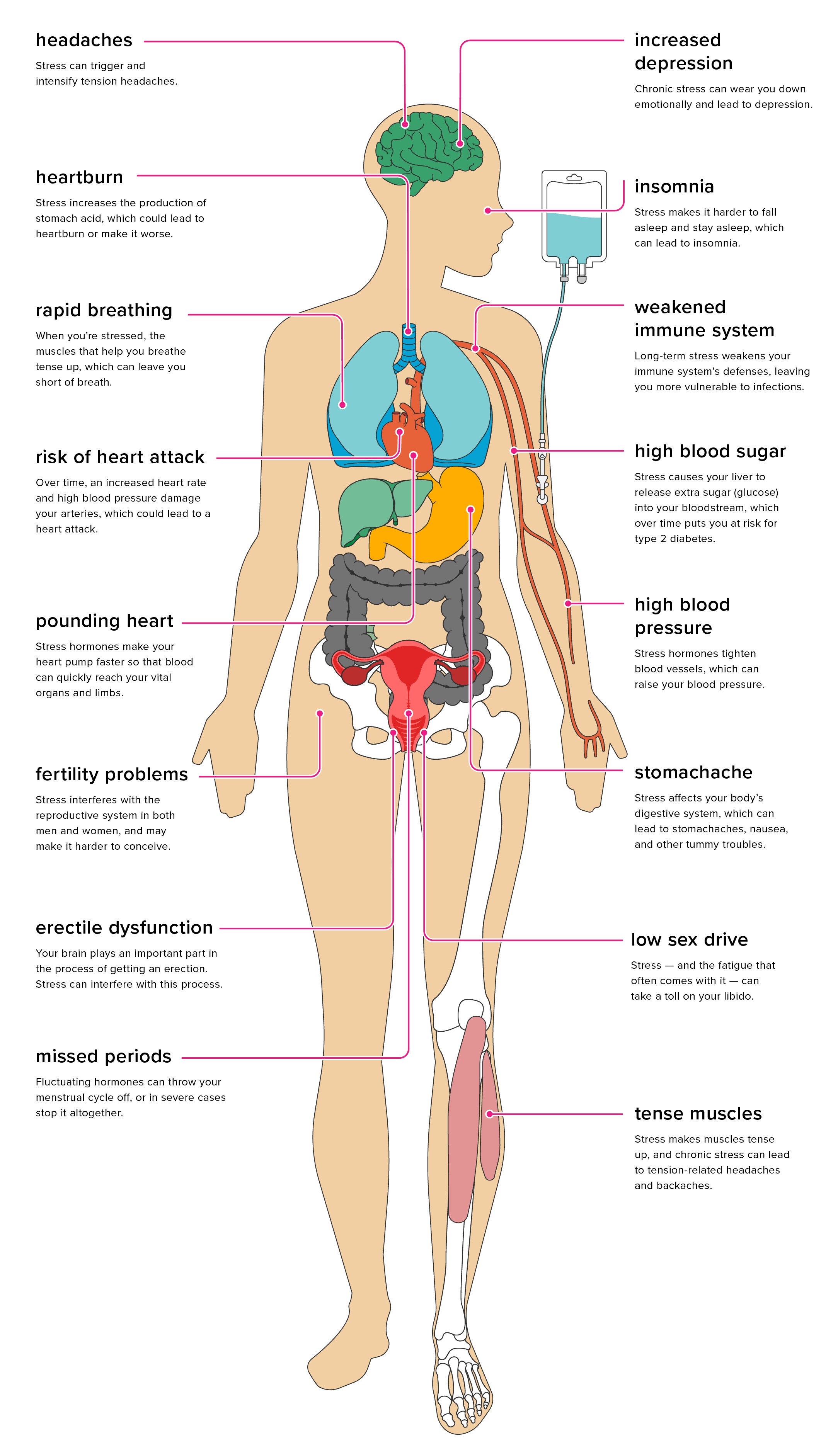The Dangerous Effects of Stress
Recognized every April, stress awareness is again a focal point this month. With such profound effect on the body, healthcare professionals across the country hope to spread awareness and also share some ways to better manage stress and overall well-being.
Everyone encounters stress from time to time, as it is a natural physical and mental reaction to experiences. While there are some beneficial elements to stress, if stress levels last longer than necessary, the toll it takes on your body can be detrimental. Healthline shared just how much impact lasting elevated levels stress has on your body’s systems.
Central nervous and endocrine systems
- When stressing, the brain releases hormones like adrenaline and cortisol that increase your heartrate, sending blood to areas of need such as muscles, heart, and other organs.
- If the stressor doesn’t go away it can severely affect the nervous system and develop behaviors such as overeating, alcohol and/or drug abuse, and social withdrawal.
Respiratory and cardiovascular systems
- During stress episodes, you breathe faster to distribute oxygen blood through your body more quickly. However, with conditions like asthma or emphysema, stress makes it even harder to breath.
- Stress also raises blood pressure which leaves you at risk for a heart attack or stroke.
Digestive system
- Under stress, your body produces more glucose to give your body more energy, however, too much can result in an increased risk of developing type 2 diabetes.
- Stress also affects your digestive system by increasing your chance of heartburn and acid reflux due to increased stomach acid. In addition, since stress affects how food moves through your body, you may also experience diarrhea, constipation, or nausea.
Muscular system
- Muscles tense up when stressed in order to protect themselves from injury.
- If the muscles never get a chance to relax, tight muscles can cause headaches as well as back and shoulder pain and other long-term body aches.
Reproductive system
- For men, chronic stress affects sperm production and may lead to impotence and risk of infection in the prostate and testes.
- For women, this stress can lead to irregular, heavier, and more painful menstrual cycles, or amplify the symptoms of menopause.
Immune system
- Chronic stress leaves you more susceptible to illnesses influenza and the common cold, while prolonging your recovery time from illness or injury.
Here’s another detailed look of where stress affects the body.
Stress isn’t just a fast heartbeat, headache or sweaty palms. Over time it can severely impact many systems throughout your body. It’s important to think about how you identify and manage your stress. If you’re suffering from long-term stress, please visit your doctor so you can develop the best strategy for tackling your stress and preserving your health.


